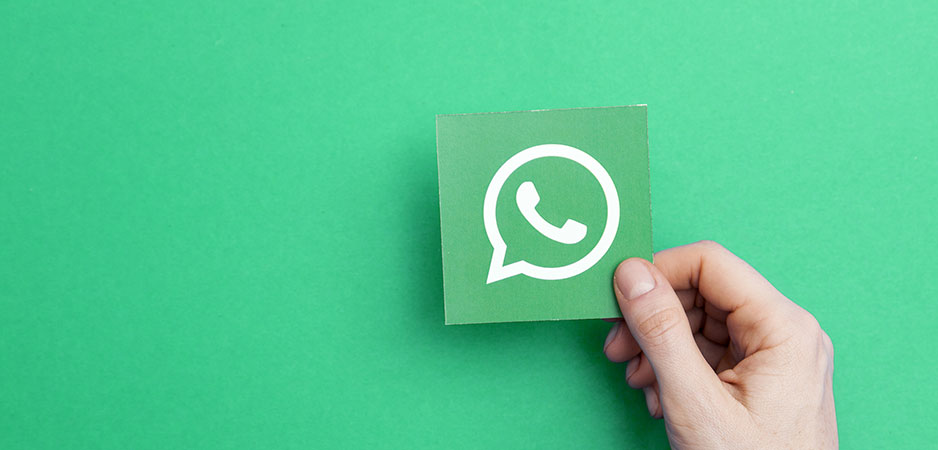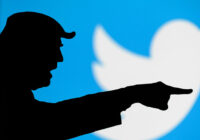New York Times tech journalist Shira Ovide offers a fascinating glimpse of what’s going on in the back offices of Facebook concerning the future of the popular messaging app, WhatsApp. Changes are afoot, she tells us. Ovide whets the reader’s appetite with this intriguing teaser: “the changes could reshape the direction of the internet.”
Everyone can understand why Mark Zuckerberg and his cohorts are losing patience with the app six years after acquiring it: “More than two billion people worldwide use WhatsApp regularly to text or make phone calls, but it scarcely generates any money for Facebook, which has owned WhatsApp since 2014.” Now, if that sentence accurately describes reality, WhatsApp is profitable but only “scarcely.” Everyone will agree that if true, we should all be crying scandal. Such a state of affairs for a respectable monopolist such as Facebook is intolerable, if not downright shameful. Imagine how Zuckerberg’s shareholders must feel. With a goldmine of 2 billion customers in their possession, where’s the gold?
The Opioid Scandal: When Evil Gets an MBA
So let’s check out the lay of the land. WhatsApp turns out to be providing a seriously useful service to billions of people, but it is only producing meager profits. It’s not as if the customers were complaining. They seem delighted. But something is seriously wrong. Making people happy, responding to their needs and knowing you have managed to make that happen with no inconvenience to yourself is not what business is about. It’s all about finding ways to extract profit from the position of privilege you’ve built for yourself without letting your customers notice how they are being exploited. Why have a monopoly if it isn’t going to make you rich at the expense of your customers?
Ovide tells us that Facebook has finally decided to address this troubling issue. She predicts that these decisions may have earth-shaking consequences. Here’s how she describes the suspense-laden drama: “If Facebook figures it out, WhatsApp could change how we shop and use the internet forever — as the company’s main social network and Instagram did. If not, Facebook will own a spectacularly popular failure.”
Today’s Daily Devil’s Dictionary definition:
Failure:
In modern business practice, any venture that achieves functional success but fails to find a way to screw its users on a massive scale.
Contextual Note
Ovide astutely reports on the strategic thinking of Facebook’s executives. We can easily recognize the Zuckerberg logic behind it: “Facebook is trying to use its trademark playbook to remake WhatsApp into an inescapable way for businesses to interact with us.”
That’s more like the Facebook we all know, admire and love (or hate). The key word is “inescapable.” That’s how Facebook reasons. Like the slave owners of the Old South who invented slave patrols and even drafted the Second Amendment of the US Constitution to make it possible to recruit armed militias to prevent the slaves from escaping, or like the Sackler family making it difficult for their cherished customers to escape the effects of opioid addiction, Facebook adheres to one fundamental truth: that businesses that accept to provide escape routes to their captive clientele will always be deemed failures, even when they succeed in providing services appreciated by a loyal public.
Ovide helpfully describes for her readers Facebook’s now traditional “three-step playbook,” which essentially consists of giving people a place to hang out (step 1); inviting business in to mingle with their victims (step 2); getting businesses to pay for advertising (step 3). Because WhatsApp isn’t about mingling, they haven’t found a way of applying the model. Ovide pertinently remarks that Facebook “doesn’t exactly know what else to do when it has to deviate from its three-step plan.”
They could have just left things the way they were, since they apparently weren’t losing money and their users were very happy with the functionality provided. Moreover, WhatsApp’s success meant that no one else would be tempted to enter the marketplace to challenge it. But monopoly can never leave well enough alone, especially if it knows it has access to billions of people that it isn’t monetizing. It must reach ever higher and farther.
At this point, Ovide expresses her own hint of schadenfreude: “It’s heartening, really, to see the big and mighty Facebook fumbling in the dark a little.” She then speculates on the probability of success for Facebook’s plan of turning WhatsApp into “a 21st-century Sears catalog,” which they have already started to do. She recognizes that this is terra incognita even for the members of Facebook’s team, who have been everywhere and done everything. She appears to reflect the uncertainty of Facebook’s strategists themselves: “Or maybe none of this will catch on widely. I don’t know, and maybe for the first time in its history, Facebook doesn’t know, either.”
Ovide reminds her readers that WhatsApp is wildly popular outside of the US, especially in India. She wonders whether, for the Asian subcontinent, the initiative will “change the entire retail industry in ways we can’t imagine” or even whether it might “influence how governments plan their currencies.” Those are the kinds of major issues Facebook is proud to be dealing with and playing the role of trendsetter.
But despite all this strategic speculation, there is another issue she doesn’t mention. In a just society, is it fair that a private company that owns a tool that billions of people have come to depend on for their daily communication should have the power to decide how their dependence can be manipulated for reasons of sheer profit? Is an economic, social and political system that not only allows, but even encourages such things sustainable? Facebook and Purdue Pharma are brothers-in-arms if not partners in crime.
Historical Note
In the short article, Ovide doesn’t take the time to analyze the origins of the Facebook-WhatsApp relationship. When Facebook put up $19 billion in 2014 to buy WhatsApp, people were already wondering about the logic of the acquisition. Business Insider pointed out that WhatsApp “does pretty much the same kinds of things that you can already do on Facebook” and called it “something it does not need, at least in terms of software functionality.”
Once the classic reasoning about the intrinsic value of the product versus the price of acquisition could be dismissed as irrelevant to the world of social media apps, Business Insider zeroed in on the real reason for the acquisition, “that WhatsApp is already, on its own, a sizeable threat to Facebook in terms of peeling off its users and siphoning them into a messaging environment that until today, Facebook had no access to.” In other words, WhatsApp was an obstacle to Facebook’s mission of world-conquering monopoly. It was that loathsome thing called “a competitor of Facebook.” That’s all the reasoning any rational person might need to write a check for $19 billion, n’est-ce pas?
At the time of the acquisition, Business Insider made the point that Ovide repeats today about Facebook’s global strategy, namely that “WhatsApp has an appeal that Facebook does not: Its core audience is international. The vast majority of its users are not American even though the company is based in California. Facebook, by contrast, is kind of the opposite — its core base is in the U.S. and it has only recently made inroads globally.”
These comments from the past remind us that Facebook’s “inroads” have now become major boulevards practically everywhere on earth. According to the firm’s 2020 vision, it’s now time to control and exploit to the hilt the global transportation network that they own and control. We may sympathize with Ovide when she confesses, in the guise of conclusion, that “I’m not sure which outcome we want, but I’ll be paying close attention either way.” Some of today’s WhatsApp users may be justified in hoping for the worst.
*[In the age of Oscar Wilde and Mark Twain, another American wit, the journalist Ambrose Bierce, produced a series of satirical definitions of commonly used terms, throwing light on their hidden meanings in real discourse. Bierce eventually collected and published them as a book, The Devil’s Dictionary, in 1911. We have shamelessly appropriated his title in the interest of continuing his wholesome pedagogical effort to enlighten generations of readers of the news. Read more of The Daily Devil’s Dictionary on Fair Observer.]
The views expressed in this article are the author’s own and do not necessarily reflect Fair Observer’s editorial policy.
Support Fair Observer
We rely on your support for our independence, diversity and quality.
For more than 10 years, Fair Observer has been free, fair and independent. No billionaire owns us, no advertisers control us. We are a reader-supported nonprofit. Unlike many other publications, we keep our content free for readers regardless of where they live or whether they can afford to pay. We have no paywalls and no ads.
In the post-truth era of fake news, echo chambers and filter bubbles, we publish a plurality of perspectives from around the world. Anyone can publish with us, but everyone goes through a rigorous editorial process. So, you get fact-checked, well-reasoned content instead of noise.
We publish 2,500+ voices from 90+ countries. We also conduct education and training programs
on subjects ranging from digital media and journalism to writing and critical thinking. This
doesn’t come cheap. Servers, editors, trainers and web developers cost
money.
Please consider supporting us on a regular basis as a recurring donor or a
sustaining member.
Will you support FO’s journalism?
We rely on your support for our independence, diversity and quality.






